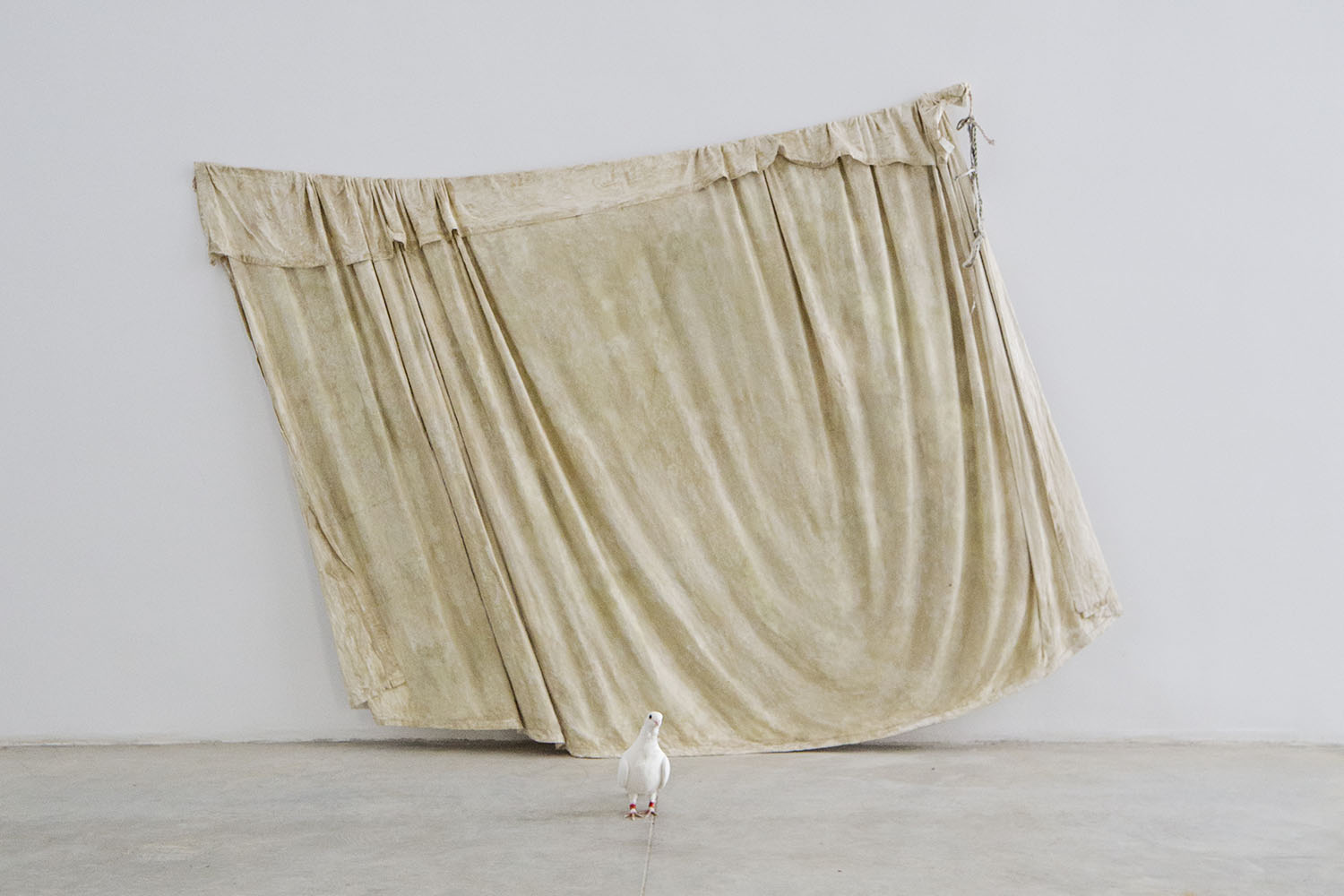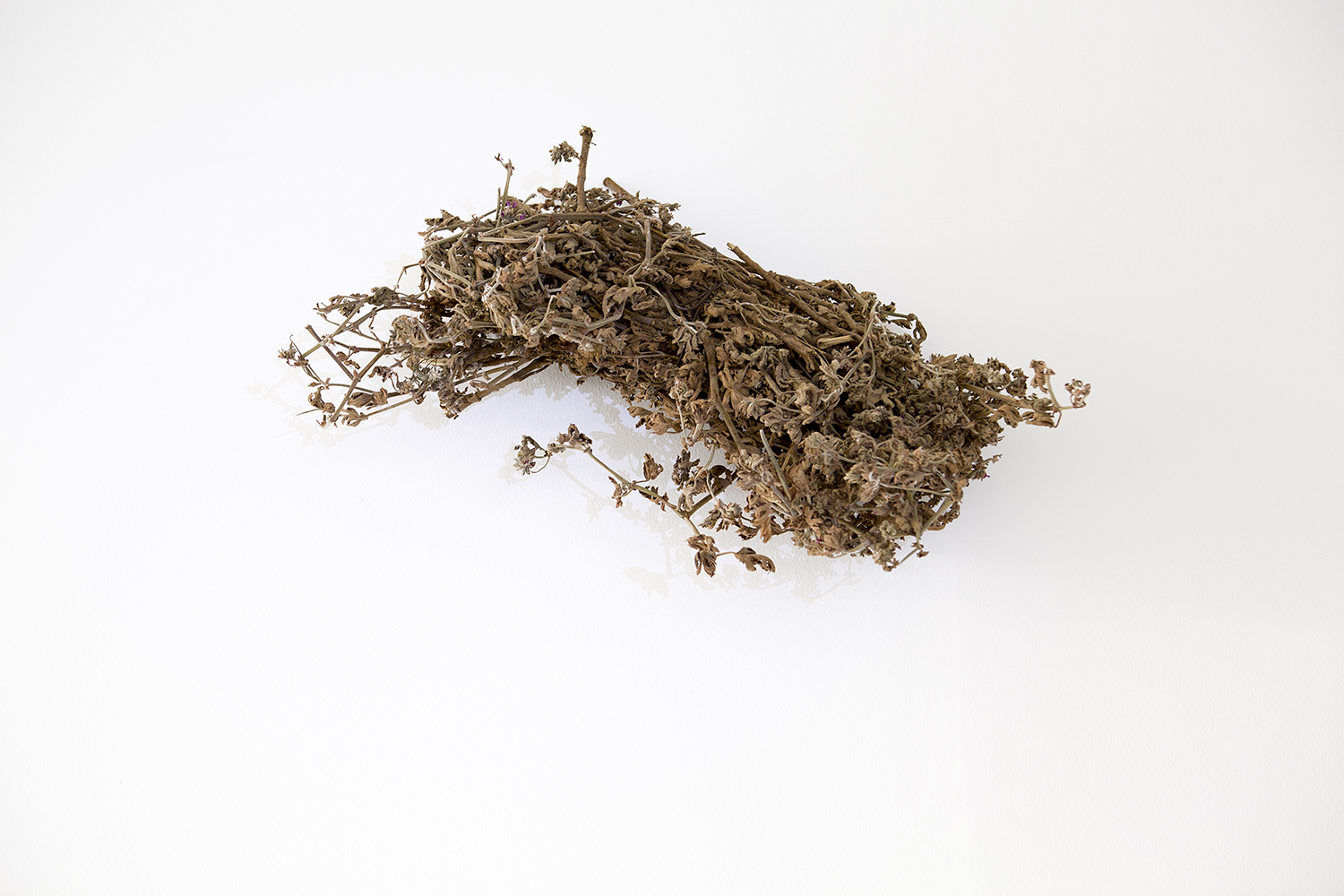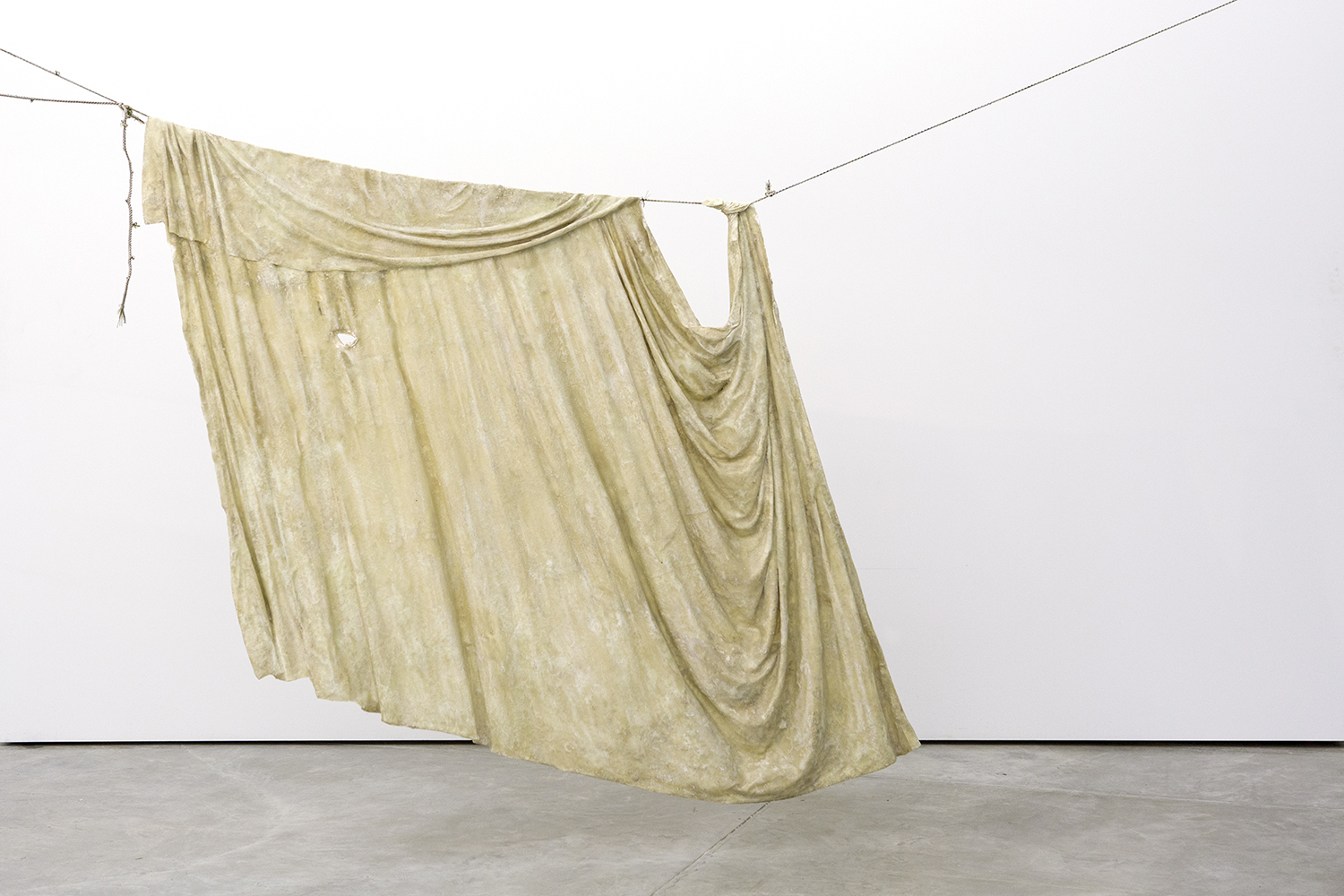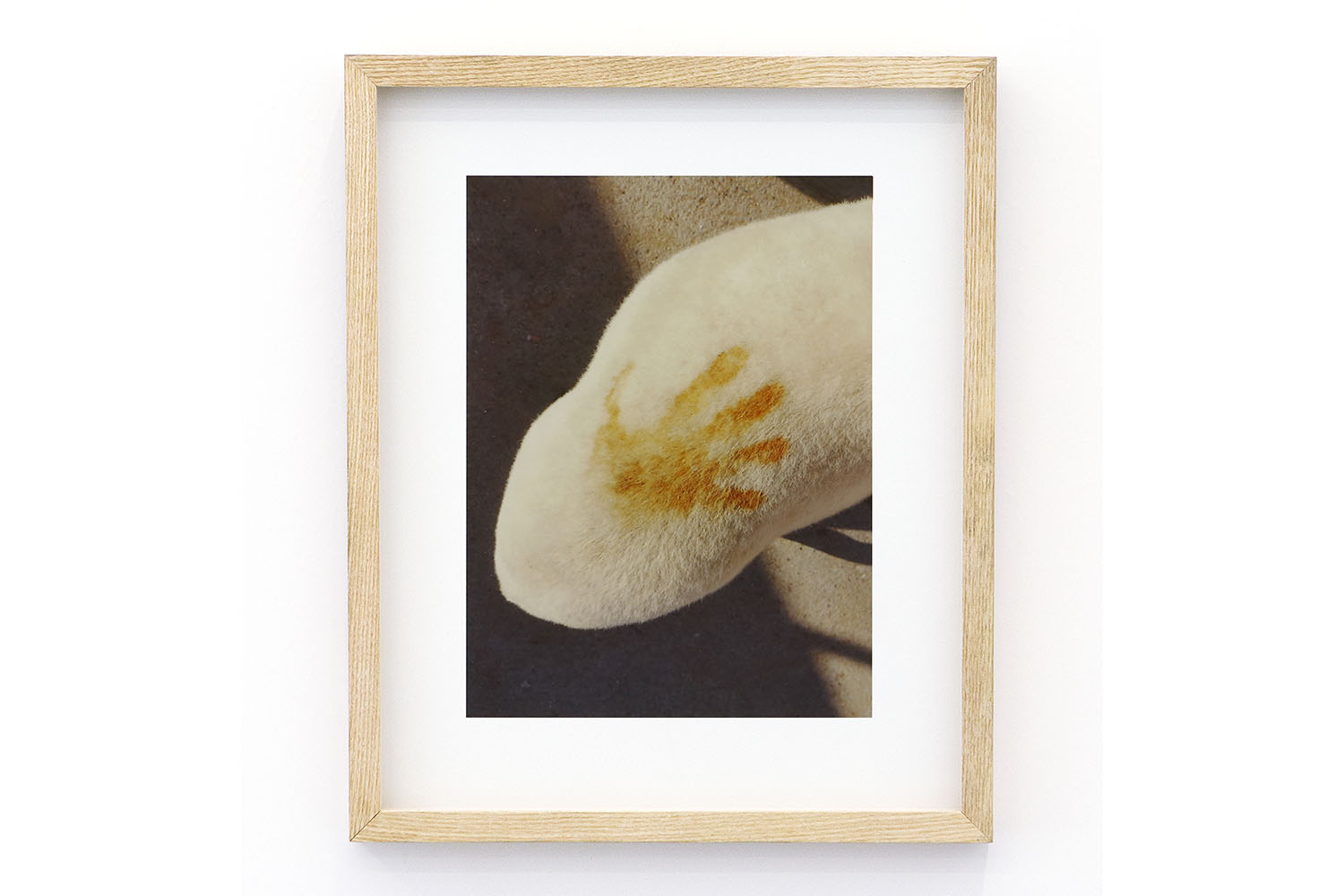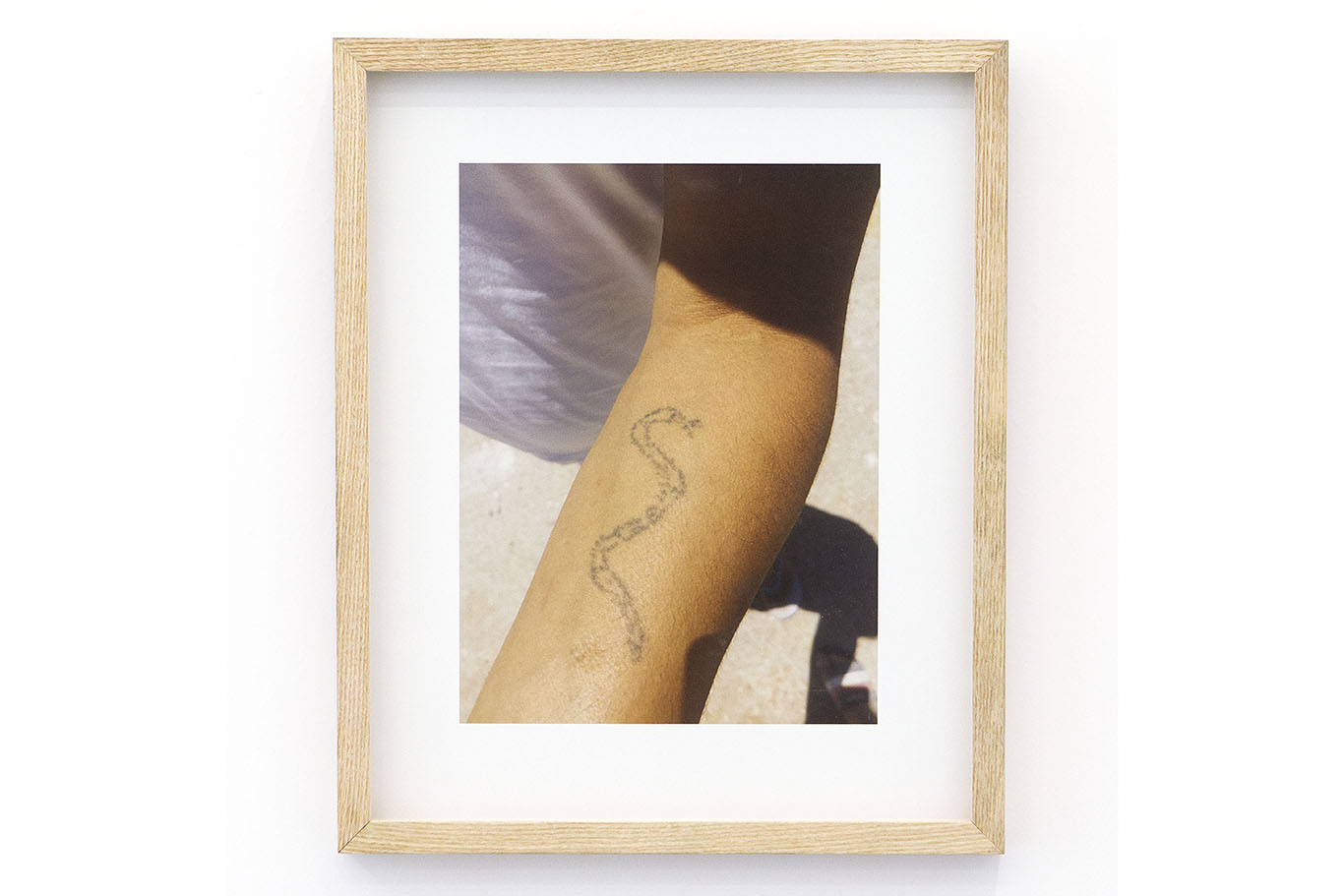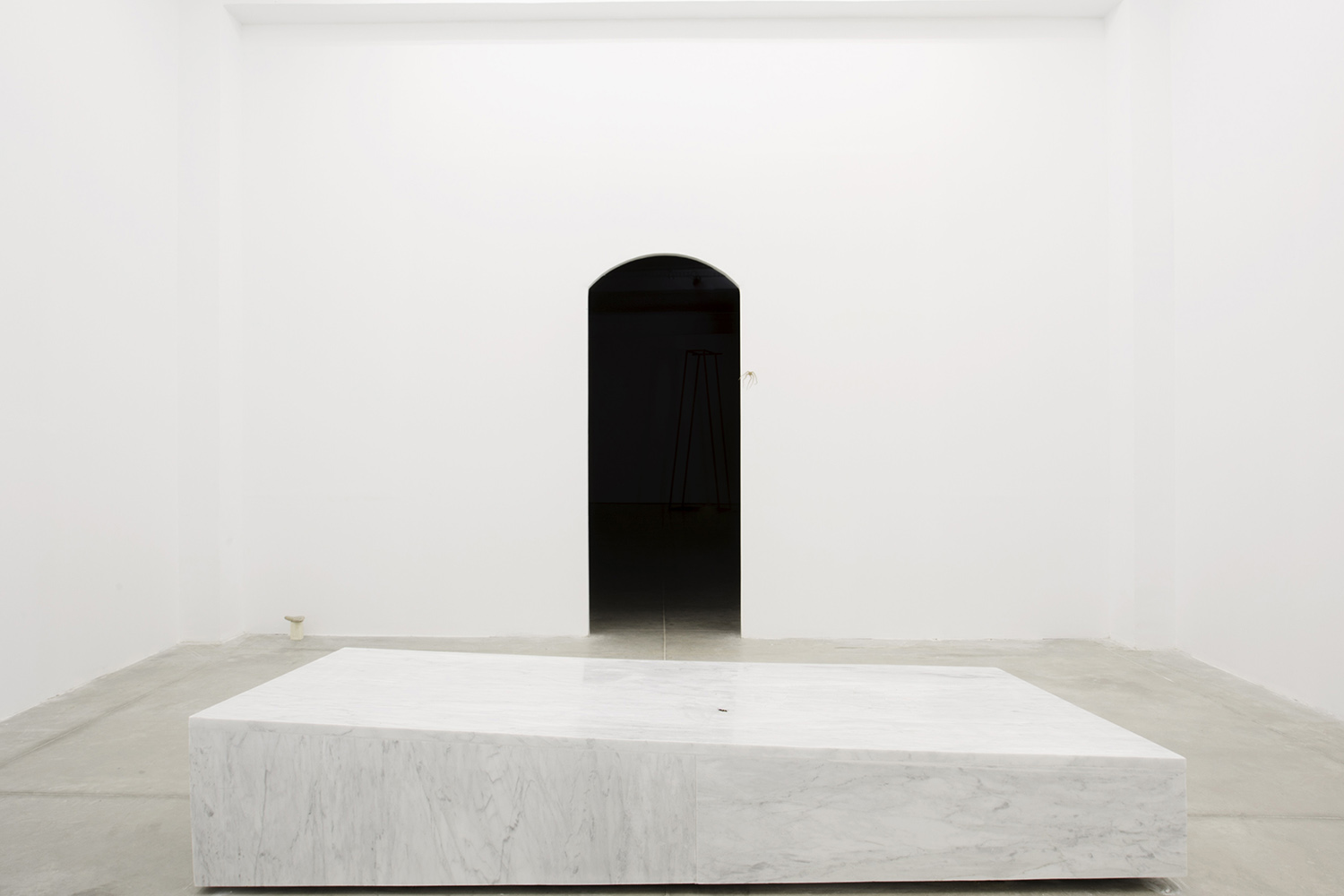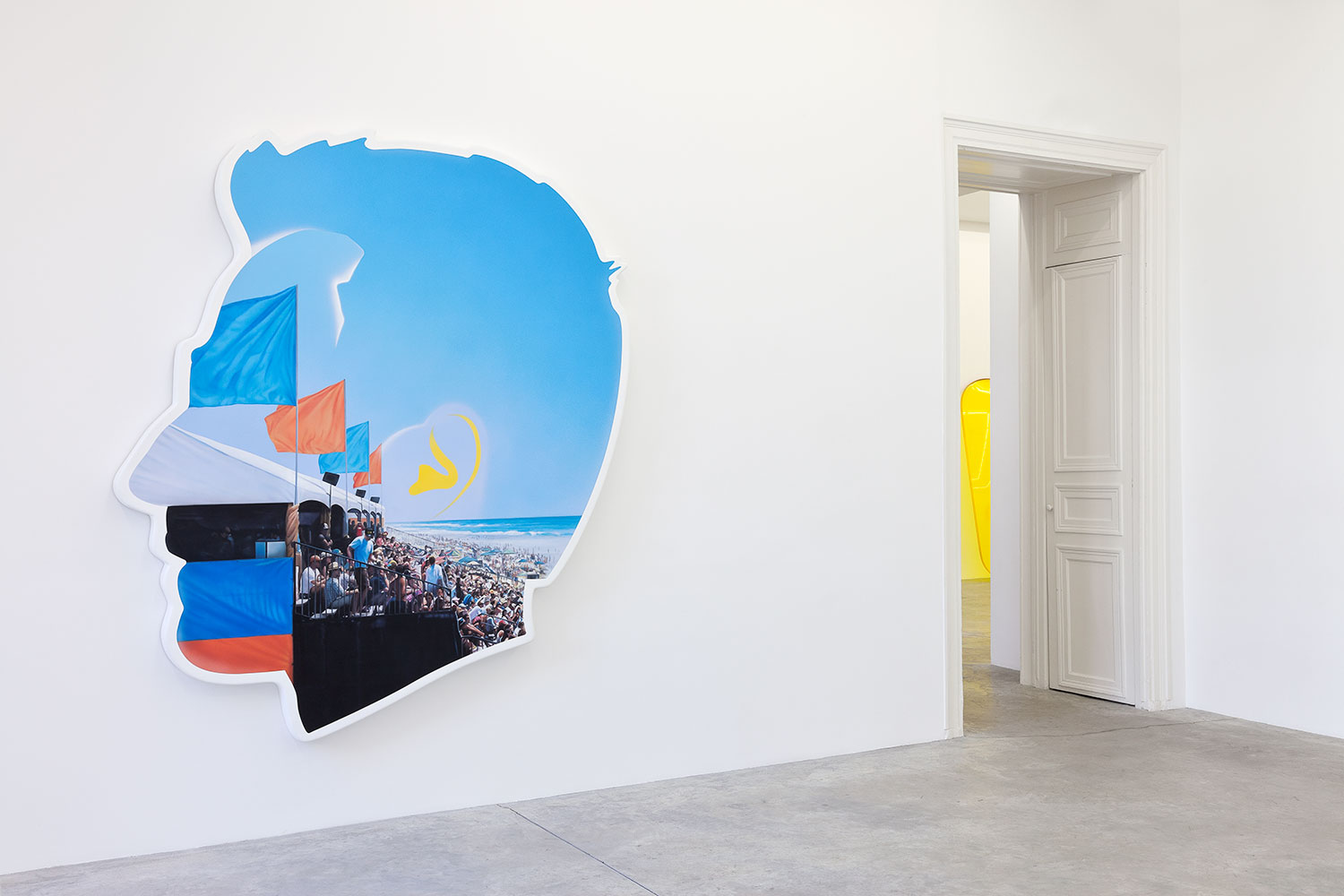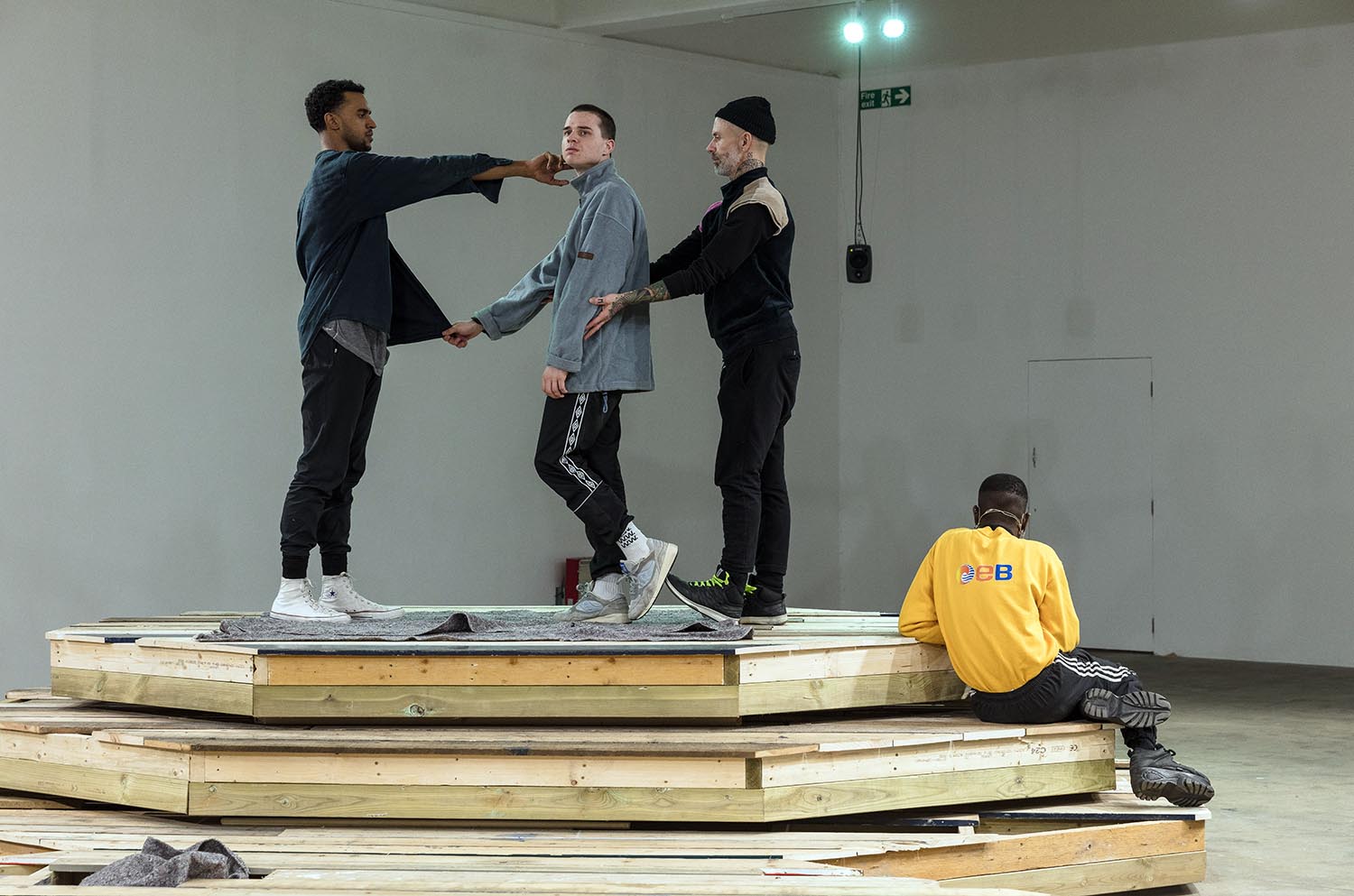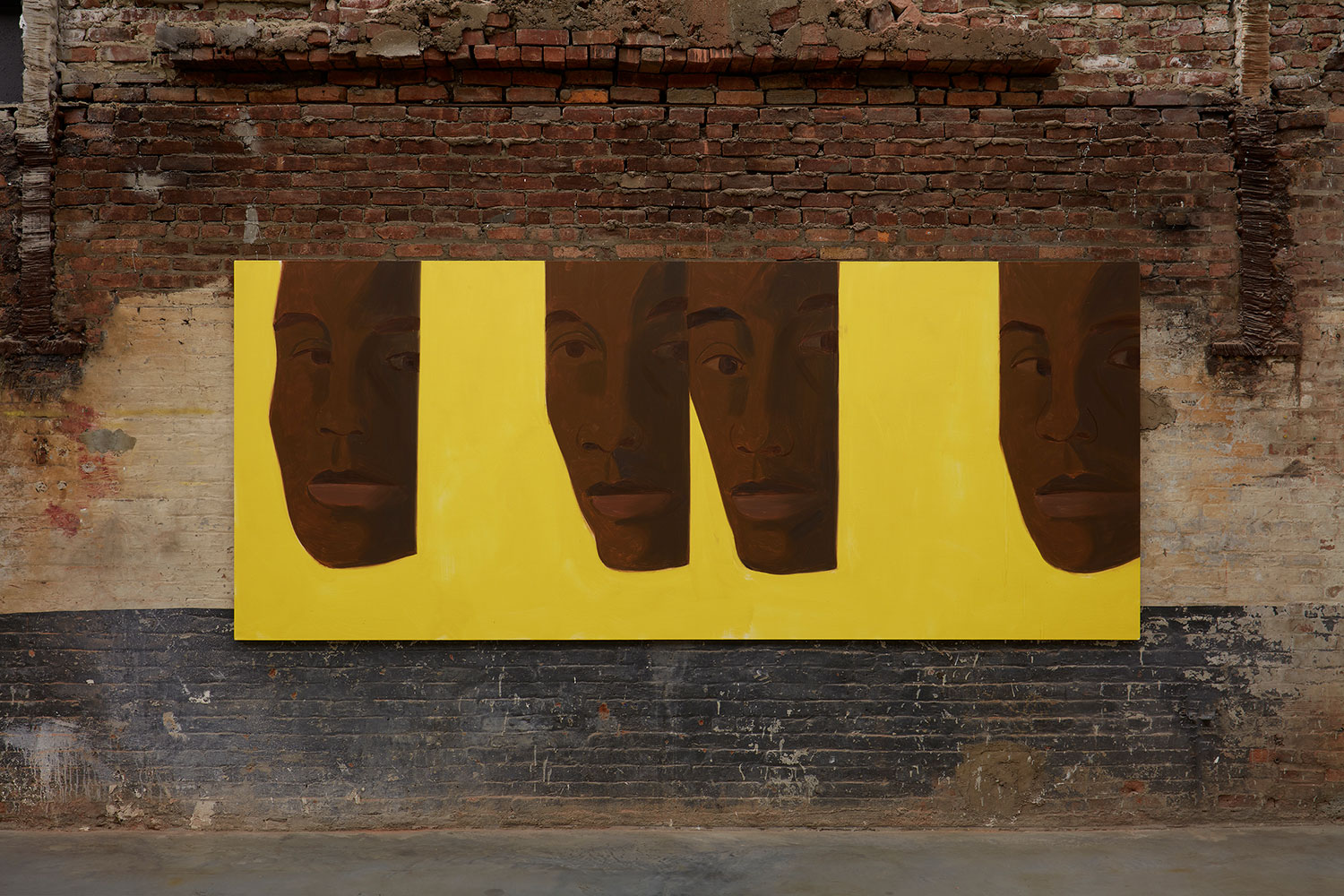From the garden behind the gallery, Alex Ayed summons a flock of pigeons that obediently shuffles its way into the space of Soap Opera — the first single-artist presentation at B7L9, the newly opened experimental art space in Tunis. The birds wander throughout the exhibition and reside in Ayed’s otherworldly “pigeon house” sculpture, whose hole-punched plaster architecture riffs on North Africa’s vernacular dovecotes. Yet pigeons are merely one in a host of living and inanimate things — many found, some (like the birds) received as gifts, others smuggled and stolen — that comprise the talismanic ecosystem of Ayed’s installation. You might glimpse a rabbit dart across the exhibition space, which, like the character in Lewis Carroll, lures us down into a world of dreams, provoking us to see anew the blur between our interior and external worlds. The collection and juxtaposition of disparate objects within a sculptural environment in Soap Operaexemplifies the artist’s working method. Culled from the chance encounters and magical coincidences of total absorption in everyday life, Ayed’s found materials are abstracted and reassembled to accommodate unfolding dramas of fluctuation and surprise.
Ayed has divided the gallery, constructing a small, brightly lit room at its center while dimming the lights in the surrounding space. The unexpected levels of darkness and light, the physical proximity of creaturely others, and an ethereal soundscape composed of synthesizer and neighborhood field recordings together engender an acute awareness of perceptual disorientation. Besides the pigeon house, the central sculptures in the darkened space are a series of drapes that the artist cast in plaster and coated in resin used for shipbuilding. Hung from ropes to punctuate the exhibition space, Ayed’s drapes monumentalize the memory-image of laundry hung to dry from a Mediterranean balcony, functioning as poetic propositions for the viewer to recall, sense, and imagine narratives between the objects displayed. The drapes’ off-white hardened ripples are a visual paradox of simultaneous stasis and transfiguration. They give solid weighted form to something that shifts shape and changes state, moving through formlessness from wet to dry while surrendering to warmth and wind.
Among the other works in the shadowy zone are a set of dominoes waiting to be played, an abstract greenish painting composed of musky olive oil soap that changes color over time, a camel head cast in the same soapy green, and a photograph of a serpent arm tattoo that Ayed took of a stranger who, by chance and by fate, helped the artist retrieve a snake that had slithered into his car engine. Olive oil soap, the titular material of Ayed’s fascination — both an “authentic” image of the Mediterranean and an exported product — conjoins the surrounding installation with the brightly lit inner room, where a bar of it is capped with a piece of tree bark in a poignant assemblage that miniaturizes an architectonics of shelter.
Two enigmatic concrete poem–like posters, which list the shorthand notation of winning chess matches, are printed on olive oil-stained paper and hung on opposing walls inside the luminous room. On the floor in between is a marble sculpture, a tilted plinth-like form whose surface is faintly inscribed with a chessboard pattern. The room dramatizes the gap between the permutations of an outcome (a game of chess) and the blank slate (the chessboard) onto which the contingent surprises of multisensory experience take place. Atop the sculpture, Ayed has positioned a grasshopper in front of the chessboard, as if the petrified creature had jumped out of the dreamworld of the game and into the ongoing soap opera of our quotidian reality. The gesture of springing between the fantasies and outcomes of chance is the most evocative interaction that Alex Ayed’s lyrical, idiosyncratic, and associative installation rehearses. His objects are not silent but guide us in risking the chaos of re-enchantment.

